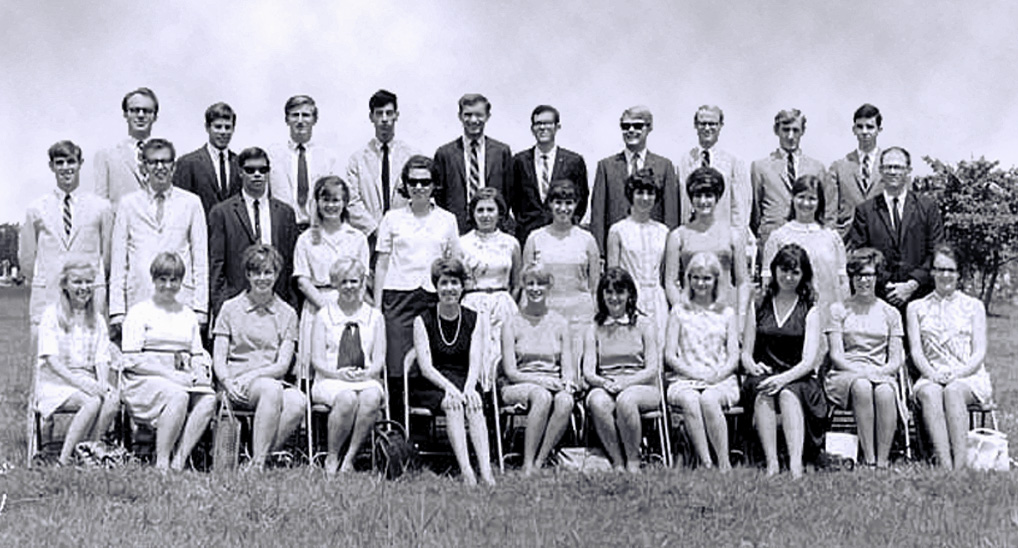Peace Corps: Teaching English in Thailand

The Khukhan School, in the Khukhan district of the Northeastern province of Sisaket, as I knew it during the period 1967-1969, when I taught English there to students in the lower secondary grades of Matayom Suksaa 1-3. The building, with its characteristic corrugated iron roof, was a two-story wooden structure with 10 classrooms, a staff of 11 fulltime teachers, including the headmaster, and approximately 200 students.
Arriving and Settling into the Classroom to Teach
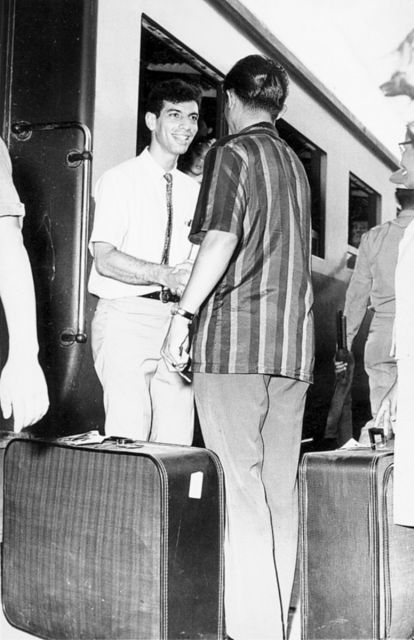 Greeted by the headmaster of the Khukhan School upon my arrival at Sisaket after an
all-night train ride on the rot duan,
the Northeastern Express from Bangkok.
Greeted by the headmaster of the Khukhan School upon my arrival at Sisaket after an
all-night train ride on the rot duan,
the Northeastern Express from Bangkok.
In August 1967, after two summers of intensive instruction in Thai, cross-cultural studies and training in Teaching English as a Foreign Language (TEFL) at Northern Illinois University in DeKalb, Illinois, I arrived by train in the northeastern provincial capital of Sisaket as a United States Peace Corps Volunteer. I was greeted by Mongkhon Suwanaphongse, the headmaster of the lower secondary school in the nearby district (amphoe) of Khukhan. With that greeting, I was off on one of the most wonderful human experiences that a newly minted college graduate—or anyone of any age, for that matter—could hope for. For almost the next two years, I lived and worked in Khukhan and taught English at the Khukhan School. I'll share some of those times through photographs with the hope that many of those I had come to know, love and respect in Khukhan and elsewhere in Thailand might see them and remember those times.
The mission as defined by the Ministry of Education in Bangkok was no less than to revolutionize the way English was being taught, to switch the basic texts from the British English oriented Oxford series to the American English oriented South East Asia Regional English Project, the so-called SEAREP texts, and to foster greater student participation based on an aural-oral approach that stressed listening and speaking skills over rote repetition, memorization and reading.
It had not been unusual for an English lesson to consist of grammar explanations in Thai, teachers reading aloud, students reading aloud in unison, repeating what a teacher had read as a class. Calling on a student or individual student participation was not encouraged. It was difficult to draw out students, to make lessons entertaining while supporting and learning from my colleague and friend Jiravich, who had less facility in English than I, but who was a skilled teacher with much more teaching experience than I had. There was always an inner tension between moments when failure and frustration pulled me back and led me to a greater appreciation and respect for my students, my fellow teachers, the people of Khukhan and the circumstances that brought us together in a cross-cultural cauldron of sorts.
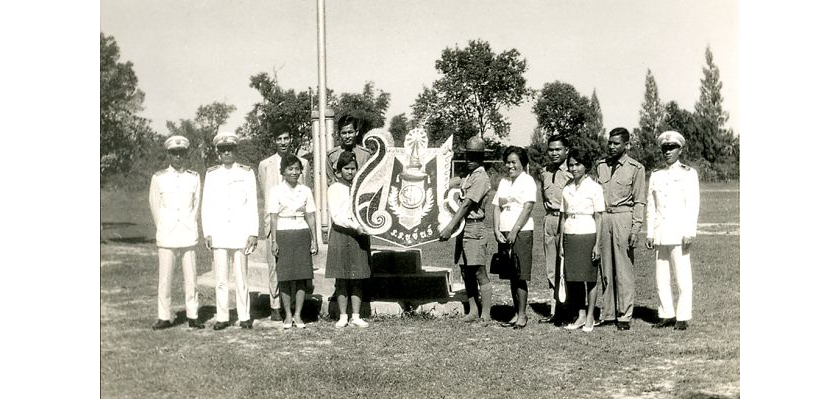
I'm not sure of the occasion, perhaps it was Wan Khru (Teachers Day) or perhaps Wan Chulalongkhorn (a celebration of the fifth monarch of the House of Chakri), when we teachers assembled for this photo, but it was a special day, for the dress white uniforms worn by the headmaster and others of rank were only worn on special occasions.
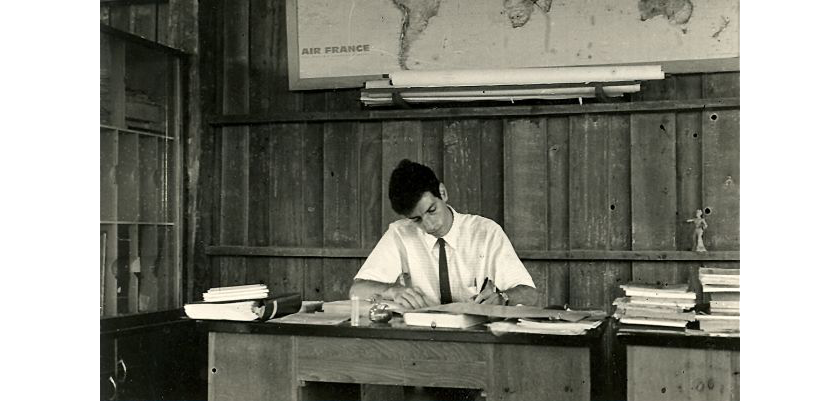
As a young teacher with just a few months training to fall back on, I found teaching to be hard work that required me to prepare for each class. Being in a classroom could either be like having a tooth pulled, or be a wonderful exhilarating experience. It was always a challenge to keep students interested and lessons lively, so whether at home or at my desk in the teachers room, I agonized over lessons that would hold their interest and perhaps more importantly make students smile, laugh and learn.
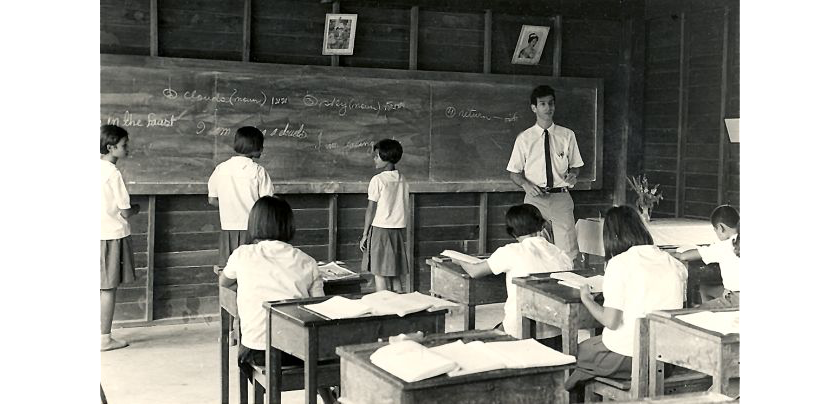
This is what it was all about. When I doubted the importance of teaching English, I thought of the important role English played in Thailand as in other parts of the world and what it might mean for the further education of my students and their futures. Years after their service, many Peace Corps Volunteers could point to former students who went on to study at universities in Thailand and abroad and to careers in every sphere of Thai society.
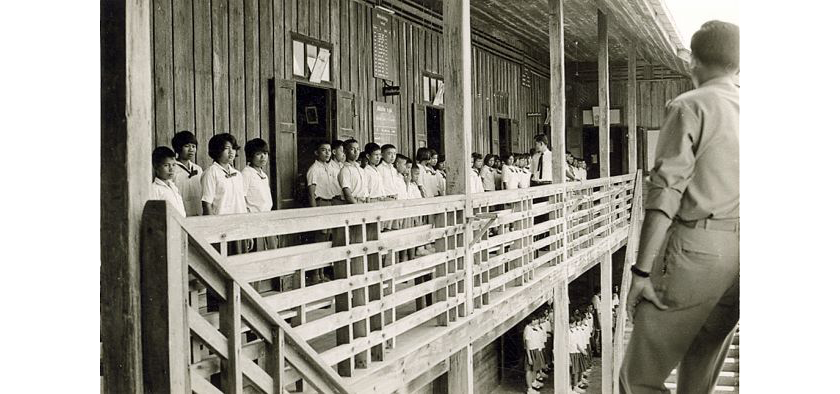
Students lined up, girls to the left, boys to the right, to hear special announcements and exhortations from the headmaster to study well.
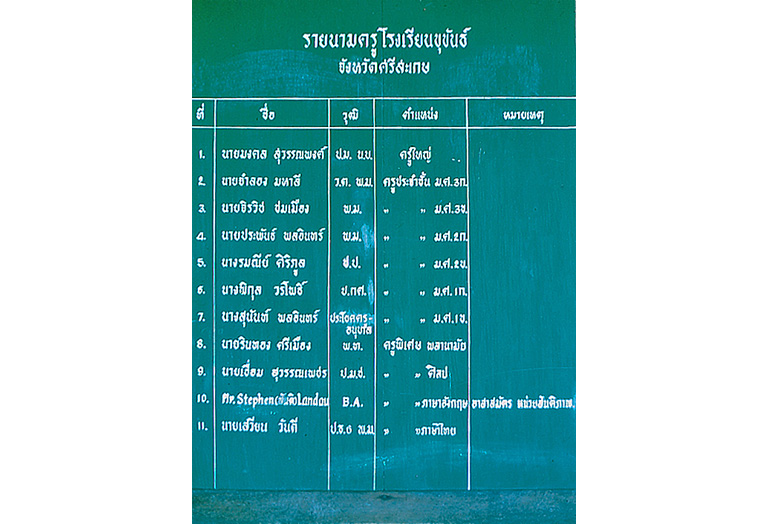
The roster of teachers at the Khukhan School giving teachers' names, the degrees or certificates attained and the subjects they taught or section or the homeroom class that they oversaw. There were two sections each of first-, second- and third-year students.
